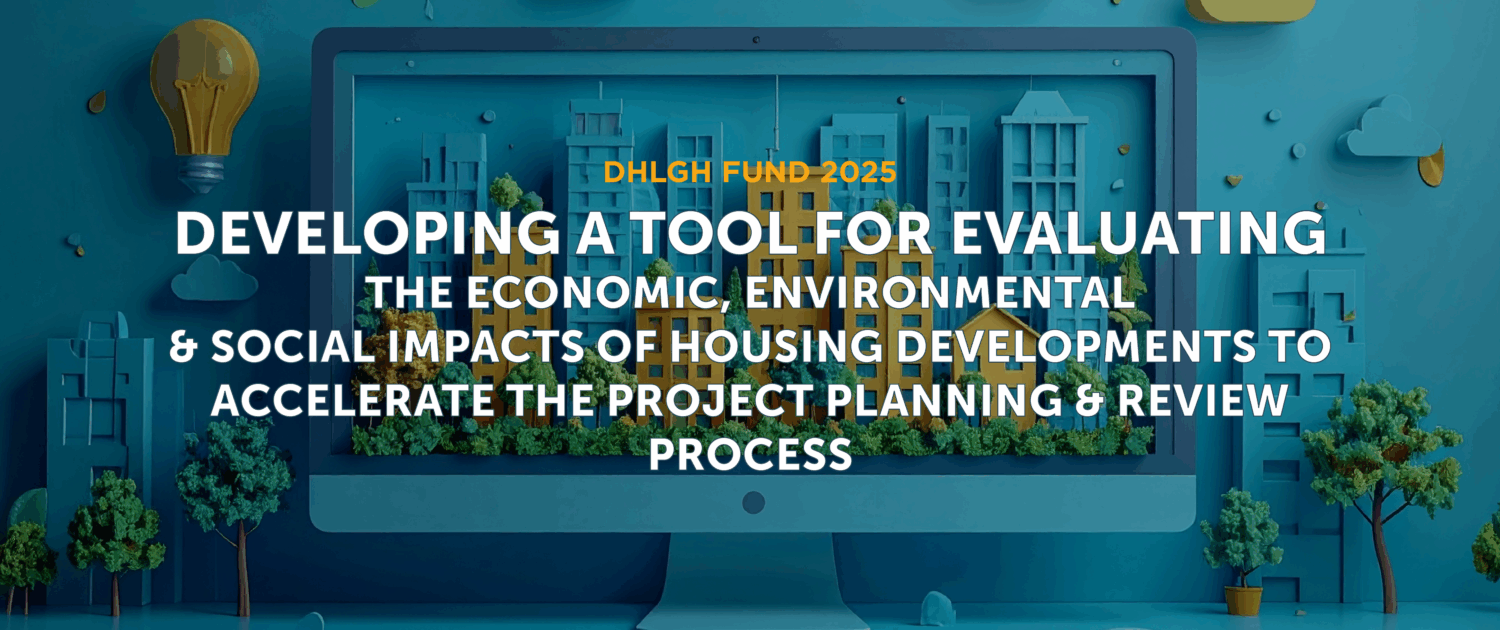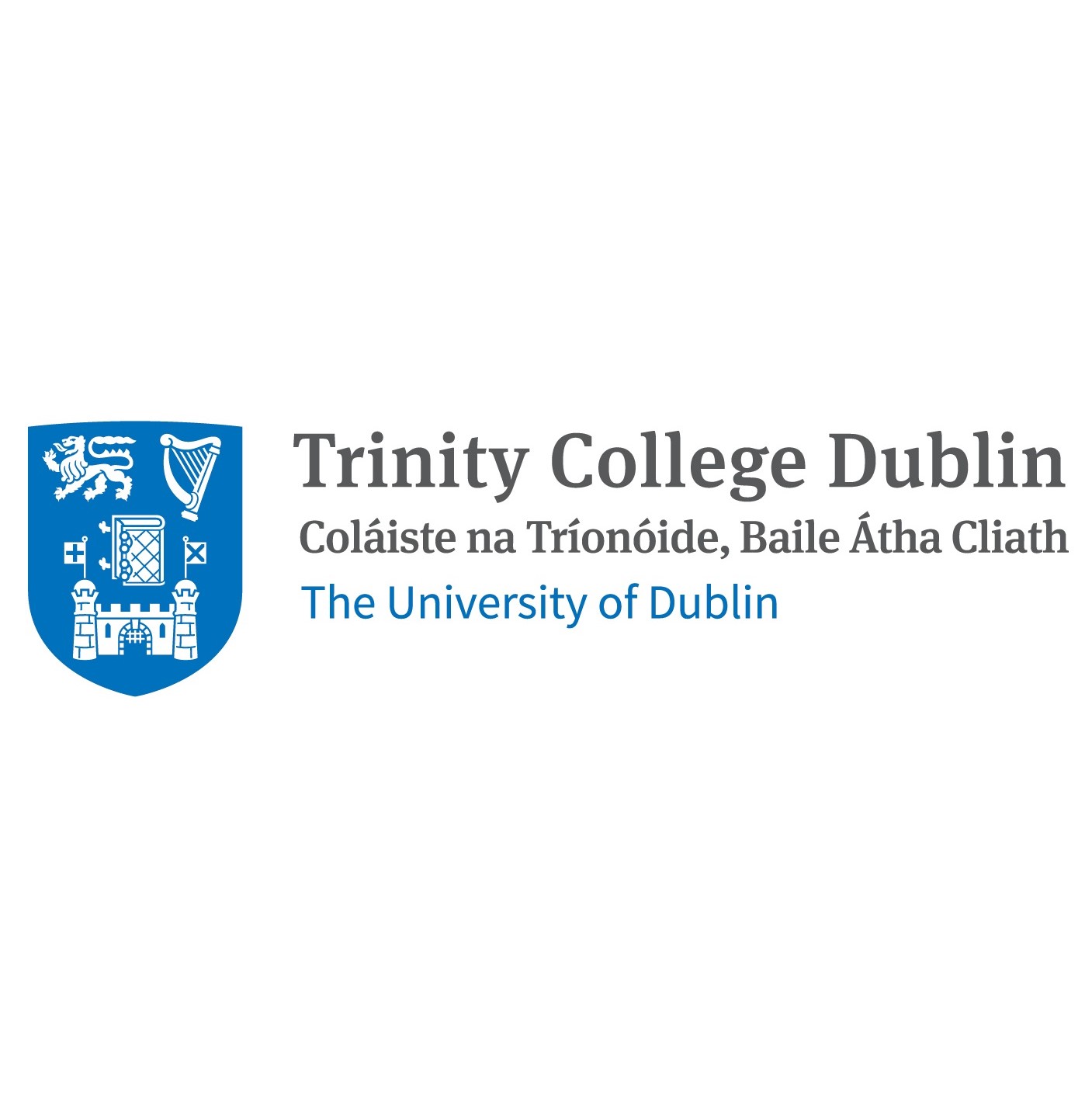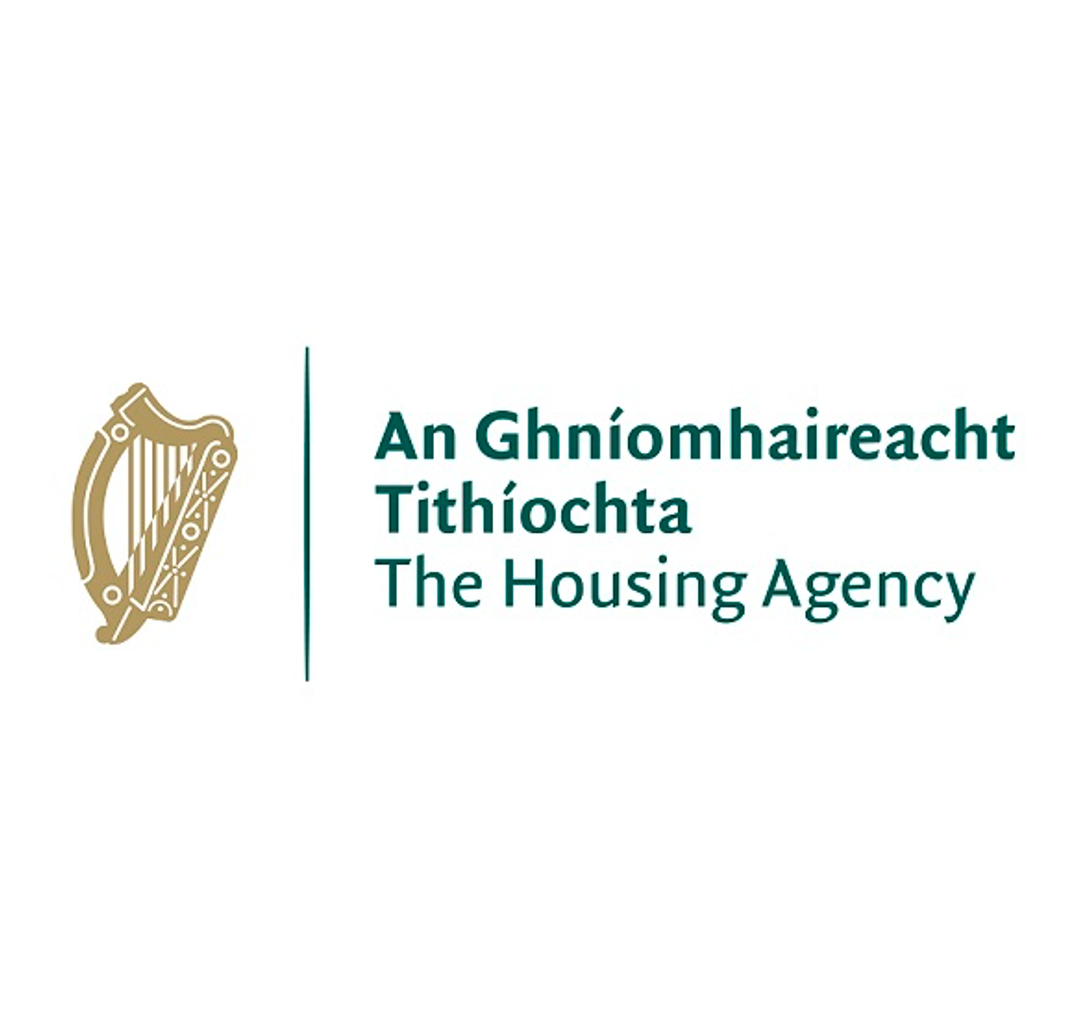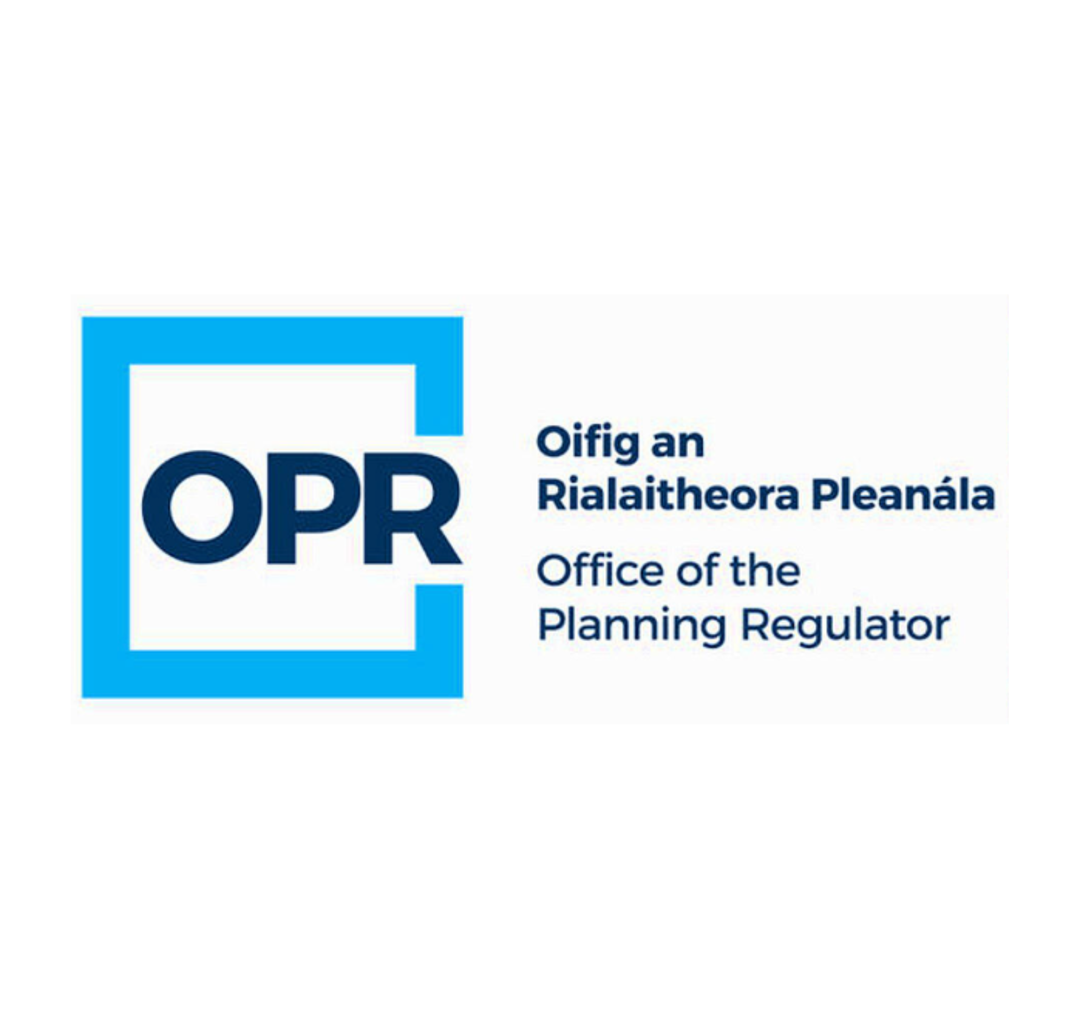Developing a Tool for Evaluating the Economic, Environmental & Social Impacts of Housing Developments to Accelerate the Project Planning & Review Process
Meeting Ireland’s Housing targets requires evidence-based decision-making about where and how to build. This project will develop a multi-faceted comparison tool to assess the impacts of housing development on greenfield versus brownfield sites. It will develop a taxonomy that takes into account economic, environmental, and social indicators, aligning with life-cycle costing (LCC), life-cycle assessment (LCA), and social LCA (SLCA) methodologies, to inform a transparent framework and decision-support tool. This excel-based tool will allow planners, policymakers, and developers to compare the economic, environmental, and social implications of a development over a short, medium to long-term horizon.
The taxonomy and tool will be co-developed with input from key collaborators (partners) such as The Housing Agency and The Office of the Planning Regulator, and an extended range of collaborators and key stakeholders including the Land Development Agency and ConstructInnovate partner organisations, with the overall ambition of building on preliminary engagement and research. It will incorporate emerging concepts like Doughnut Economics and Natural Capital Accounting and draw from recently launched tools such as ENHAT (Environmental Impact of New Housing Development) produced by Housing England. Ultimately, this research aims to drive compact, sustainable urban growth and reduce state and societal costs in Ireland.
Collaborators:
Partner 1: Office of the Planning Regulator
Partner 2: The Housing Agency
Collaborators
Principal Investigator

Dr. John Gallagher
Associate Professor (Civil Struct & Env. Eng.), Trinity College Dublin
Dr Gallagher is an Associate Professor in Environmental Systems Modelling and Director of TrinityHaus Trinity Research Centre in the Department of Civil, Structural & Environmental Engineering. He is also a Fellow of Trinity College Dublin (FTCD) and holds a Education for Sustainability Development (ESD) Research Fellow within the University. Since Dr Gallagher’s joined the Department, his research has focused on applying the 3M method (measurement, modelling and mitigation) to inform the development of passive engineered and nature-based solutions that deliver healthy indoor and outdoor spaces in a sustainable manner. His environmental pollution research focuses on reducing air pollution in and around buildings and transport hubs, improving environmental quality (air, noise and temperature) in urban green spaces. His work on low-carbon and resource efficient design of energy and infrastructure systems has informed contributions to standards development. Dr Gallagher has published over 50 papers in these areas in high impact international journals and international conferences, and to date he has been awarded over €1 million in research funding (from EPA, Research Ireland, SEAI, Erasmus+, INTERREG NWE & AA, and HORIZON 2020). He currently leads of a team of 9 researchers (6 PhD students, 2 postdoctoral researcher, and 2 research assistants). He has also produced professional research reports for a range of organisations in areas of water (EPA, An Foran Uisce), air pollution (Dept of Housing), low-carbon transitions (agriculture for Welsh Government, low-carbon buildings for Dublin City Council). Dr Gallagher also a member of a number of National and International research groups including the Environmental Science Association of Ireland, the Future Urban Ventilation Group, and was a member of the executive committee of the Universities Transport Studies Group as well as the U.S. Transportation Research Board ‘Air Quality and Climate Change’ committee. He is an Editor for the Discover Civil Engineering journal, acts as a reviewer for a range of journals, as well as international organisational report (World Health Organisation, World Green Building Council).







